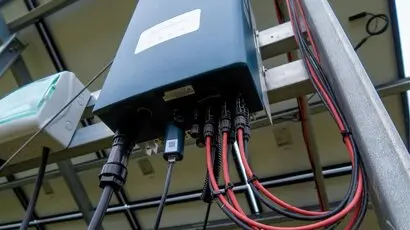
Get your free Melbourne Electrician quote today!
Our team of Melbourne Electricians is here to help you with any questions or concerns you may have. We’re committed to providing you with the best possible service and support.
Power outages can severely disrupt commercial operations, leading to financial losses, reduced productivity, and damaged reputations. Understanding the potential consequences can help businesses prepare effectively, ensuring operations remain resilient in the face of unexpected power issues.
Power outages aren’t merely bothersome these days; they’re becoming a serious threat for businesses globally. The Australian Energy Market Operator warns of possible reliability gaps as soon as 2025, highlighting the increasing risks.
Businesses across sectors, from retail and healthcare to professional services, rely heavily on consistent power supply. Unplanned outages can lead to significant financial losses, operational disruptions, and damage to reputation. Gartner estimates that these disruptions can cost businesses up to $5,600 per minute, emphasising the severity of the issue.
This article delves into the hidden costs of power outages, exploring the financial and operational impacts they can have. We’ll also discuss strategies to help businesses mitigate these risks and ensure a more resilient power infrastructure.
What Are Power Outages?
Power outages can be highly disruptive, but understanding their nature can help businesses prepare. Outages can be classified as either planned or unplanned. Planned outages typically occur when utility companies conduct maintenance on the electrical grid, while unplanned outages are sudden and often result from factors beyond control.
Unplanned outages are generally caused by extreme weather events, equipment failures, or grid malfunctions. In Australia, storms and other natural events often lead to these sudden power losses. Equipment issues, such as malfunctioning transformers, are another frequent cause.
For businesses, understanding the types and causes of outages is crucial to creating an effective plan for maintaining stability during these disruptions.

To tackle power outages, businesses should have a solid resilience plan. A wise move is investing in backup generators or surge protectors to keep essential operations running smoothly, even when the lights go out.
Having a comprehensive emergency response plan in place is also essential. This includes training staff and running regular drills to ensure everyone knows how to respond during an outage. Such preparations can significantly minimise downtime and ensure safety during unexpected situations.
Additionally, businesses should consider insurance and financial planning to reduce the impact of power-related incidents. The right coverage can help compensate for losses and ensure the business can quickly recover and resume normal operations.
Innovative Solutions
Businesses today have access to innovative solutions that can minimise the impact of power outages. Smart grid technologies, for example, offer improved monitoring and faster responses to power issues, reducing downtime.
Energy storage systems are another valuable tool, allowing businesses to store electricity for use during outages. This reduces the immediate impact of power loss and provides more time to activate backup systems.
Embracing renewables also boosts resilience. Solar panels, paired with storage batteries, can keep operations humming, especially during the day, ensuring a steady power supply.
Stay Powered with WP Electrical
WP Electrical is your go-to for keeping your business up and running, even when the power’s out. Our experienced team offers reliable electrical solutions, ensuring you stay on track during unexpected hitches.
We specialise in offering tailored power outage services, including installing backup generators and surge protection systems that keep your operations smooth and uninterrupted. When it comes to maintaining stability and avoiding costly downtime, professional assistance can make all the difference.
Reach out to WP Electrical today to learn more about how we can help you safeguard your business from power disruptions. Our expert services are designed to keep your operations stable and your customers happy.
FAQ: Impact of Power Outages on Commercial Operations
How can power outages affect customer experience?
Power outages can severely impact customer experience by causing delays in service, making products temporarily unavailable, or disrupting communication channels. This can lead to customer frustration and potential loss of business if customers seek alternatives.
What role does data security play during power outages?
Data security becomes a big worry during power outages. If backup systems falter, critical data might be lost, or security could be compromised. Having rock-solid data backup solutions and protocols is crucial to protect sensitive information.
Are there industry-specific impacts of power outages?
Yes, different industries face unique challenges during power outages. For example, manufacturers may experience halted production lines, while healthcare facilities risk compromising patient care. Understanding industry-specific vulnerabilities is crucial for effective planning.
How can businesses communicate effectively during an outage?
Effective communication is key during an outage. Businesses should have a communication plan that includes backup communication methods, such as mobile phones or satellite phones, to maintain contact with employees, customers, and suppliers.
What is the importance of having an emergency response plan?
Having an emergency response plan makes sure everyone knows their role during an outage, cutting confusion and reducing downtime. Regular training and drills keep these plans fresh, ensuring a quick, organised response when the lights go out.
Published by: Pascal Harb17 October 2025